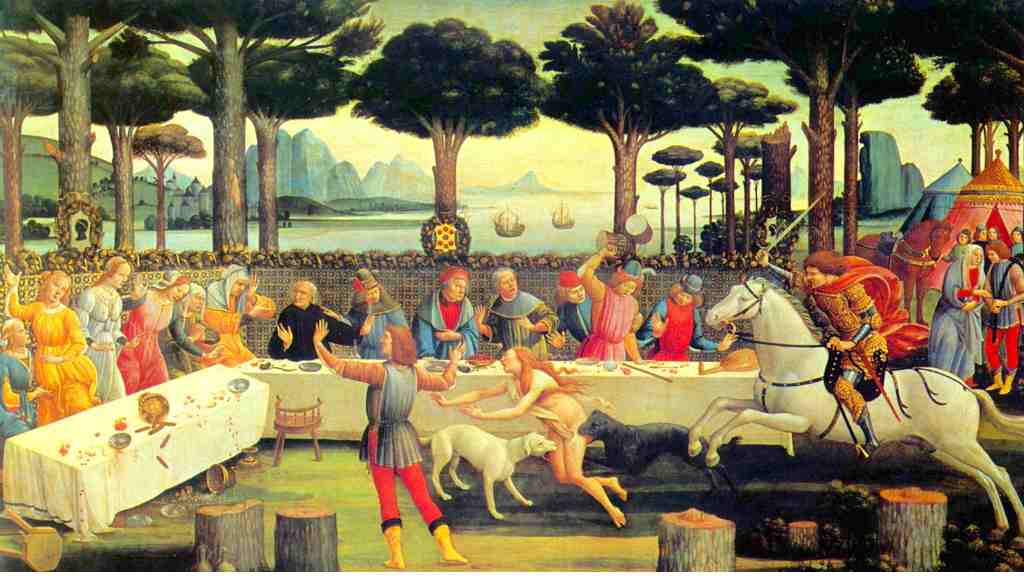Updated August 18, 2023
The 18th Century English Literature has a unique place in European literary space. Mathew Arnold, the great poet and critic of the Victorian Age sums up the 18th century in English Literature as “The Age of Prose and Reason, our excellent and indispensable 18th century”.
In this way, Arnold asserts two significant points about the 18th century: one, it is predominantly the age of prose & reasons and the other, it is exceptionally rich and noticeable period in the literary productions. A close examination of this period substantiates these observations of Mathew Arnold
In this article, we will explore the distinctive features of 18th century English literature and how it stood apart from its predecessors.
Important Features of 18th Century English Literature
Rationality and Reason
One of the defining characteristics of 18th-century English literature was its emphasis on rationality and reason. Influenced by the Enlightenment movement, writers of this era sought to apply logic and critical thinking to various aspects of life. They believed in the power of reason to understand and improve the world, leading to a shift away from the supernatural and the fantastical.

Classical Age of Literature
The 18th century is sum total of Age of Pope or the Augustan Age (1700- 1750) AND the Neo-classical age (1660 and 1798). Literature of this period was greatly influenced by the works of the writers of classical antiquity. The literary figures of this era believed classical writers to be the models and the ultimate standards of literary taste.
The poets of the 18th century tried their best to copy the classical writers of Latin Literature. That is why the 18th century is sometimes also called the Classical Age, simply too.
Epoch of Peace and Prosperity of the 18th Century
The 18th century was an era of stable government in England. Queen Anne ensured a stable government which resulted into an epoch of peace and prosperity. This period saw no crisis except in the field of trade and commerce. The upper aristocratic class had great influence on all the socio-political events of the time.
In fact, they were the virtual rulers of the country. They fought the elections of the Parliament and sometimes bought the seats. This upper class became the custodians of the nation’s culture and exercised great influence at the court.
The Age of Reason
The 18th century was essentially an Age of Reason. It opposed the individual initiatives in the fields of art, science and social progress. It was a period of false appearances of assured self interest. The Age emphasized rationalism, intellect, logic and wit. It was opposed to excessive emotionalism, sentimentalism, enthusiasm and even imagination.
Human Nature
The principle which got the highest widest recognition during the 18th century was the Pope’s ‘Nature’. It was not the ‘nature’ of Romantics but it was ‘human nature’. It meant a rational and intelligible moral order in the universe.
However, it also meant the normal course of the world or the ideal truth by which art should be guided. This Age also emphasized the need to adhere to the rules of the literature. It emphasized on correctness and was averse to enthusiasm and emotion.
The Age of Prose
The excellent and indispensable 18th century was essentially an Age of Prose and not of poetry. The poetry of the period developed the qualities of prose. That is why, Mathew Arnold said that “Dryden and Pope are the classics of not our poetry but Prose “. Among the great prose writers of the age are Addison, Steele and Swift.
Swift was in fact, the master of English prose. As a master of simple and direct prose style, he had few rivals and no superior. Addison and Steele contributed significantly to the development of periodical essays. Sheridan and Goldsmith contributed significantly to drama. Pope is the poet par excellence of the time.
On the whole the 18th century had with some distinctive characteristics of its own. It was an Age of enlightenment and understanding.
Conclusion on Important Features of the 18th Century English Literature
The features of 18th century English literature set it apart from previous literary periods. The emphasis on reason, satire, neoclassicism, moral instruction, and the rise of the novel all contributed to a distinct literary landscape.
This era witnessed a shift towards rationality, social criticism, and a focus on the human experience. The works of 18th century writers continue to be studied and appreciated for their intellectual depth, social commentary, and enduring literary value.
Beyond 18th Century English Literature Under Literature
- A Short Note on Gothic Fiction and Prominent Novelists
- Literary Characteristics of the Age of Pope aka the Augustan Age
- The Four Wheels of the English Novel in 18th Century
- Features of the Picaresque Novels and Influence on Fictions
- Periodical Essay & Journal of Neo Classical Age in 18th Century
- The Background of the Prose in 18th Century
